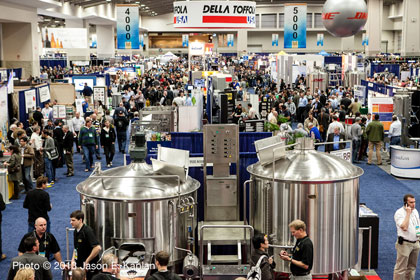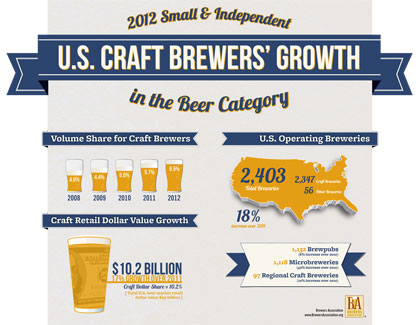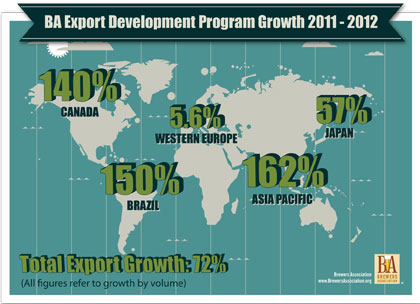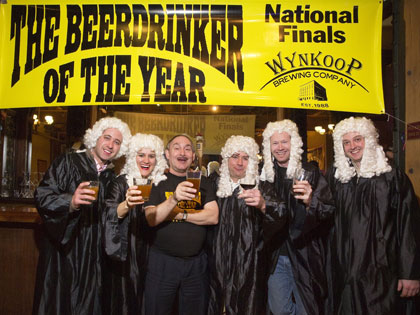Deschutes Brewery and Sierra Nevada both won two overall champions awards at the International Brewing Awards 2013. The overall winners were honored in London’s Guildhall, the best of medalists previously announced immediately after the judging in February.
The bi-annual competition attracted more than 1,000 entries from 45 countries. Forty judges, all professional brewers, assessed the beers over the course of three days. The medal winners in each category were announced at the National Brewery Center in Burton upon Trent, where the judging was held.
Sierra Nevada Pale Ale won Champion Keg Ale and Narwhal Imperial Stout won Champion Strong Ale. Deschutes Mirror Pond was Champion Smallpack Ale and Obsidian Stout the Champion Dark Beer. Samuel Adams Black & Brew captured Champion Specialty. Samuel Adams beers won nine medals overall.
Ruth Evans, director of competition organisers Brewing Technology Services, said, “We are delighted with the response to The International Brewing Awards 2013. The competition attracted more entries than in 2011, from 50 countries and from a broad spectrum of producers from regional micro-brewers to multi-national companies. This diversity is important to our Awards and is key to their appeal to the international brewing community.
Champion Smallpack Lager
Bryggmästarens Premium Gold
AB Abro Bryggeri, Sweden
Champion Smallpack Ale
Mirror Pond Pale Ale
Deschutes Brewery, USA
Champion Keg Ale
Sierra Nevada Pale Ale
Sierra Nevada Brewing Company, USA
Champion Keg Lager
Hells Lager
Camden Town Brewery, UK
Champion Non and Low Alcohol Beer
Northern Light
Daniel Thwaites, UK
Champion Dark Beer
Obsidian Stout
Deschutes Brewery, USA
Champion Strong Beer
Narwhal Imperial Stout
Sierra Nevada Brewing Company, USA
Champion Speciality Beer
Samuel Adams Black & Brew
The Boston Beer Company, USA
Champion Cask Ale
Green Devil IPA
Oakham Ales, UK
Champion Cider
Thatchers Vintage Cider
Thatchers Cider Ltd, UK




